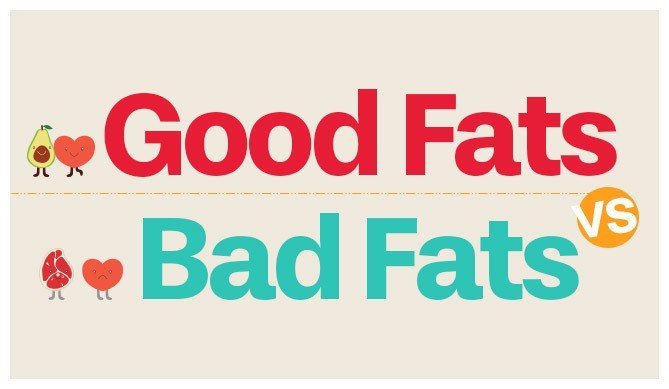Note: this post has been updated in January 2022.
Fats are one of the six Essential Nutrients that are necessary for energy and materials for life building processes in the human body. Thus, the term essential nutrients. This post will center on Fats and is called Good Fat vs Bad Fat on a Plant-Based Diet.
Dietary Fats
When it comes to dietary fat there are a lot of approaches. Some diets say that all processed and additional fats are bad for you, and others allow for so-called healthy fats to be added such as olive oil. See No More Oils and also Olive Oil Myths. Here we’ll go over the different ideas and you can come to your own conclusions about which is best for your individual health needs and will answer the question of good fat vs bad fat on a plant-based diet. Most processed and fried foods have a high level of bad fats. I know it may look good to some of you, however, it is not a choice if you want to follow a plant-based diet. See the image of bad fats below!
No Added Overt Fat Approach
There argue that no one ever suffers from a fat shortage or deficiency and that our bodies can get all the fat it needs from the whole foods that we eat. Want some fat? Eat an entire olive, or some coconut, banana or avocado but take it easy because you don’t need that much fat and should instead enjoy a variety of plant-based food in its most natural form without processing it into a form of concentrated calories that you don’t need.
According to their studies and review of the studies done, there are no safe levels of additional fat you can add to your meals from processed fats and that you should not eat more than 10 percent of your daily caloric intake in fats naturally present in food. Eliminating added oils is therefore essential to health because most people will easily consume more than 10 percent of their daily calories in fat without even adding one processed oil product.
Replacing Saturated Fat with Poly or Monounsaturated Fats
There is another rule of thumb among some plant-based nutritionists that eating a diet too low in added fats can cause a rise in triglyceride levels. The doctors mentioned above argue that this is not true when eating a whole food plant-based diet, although it might be true when a subject replaces their fat with processed carbs that are low in fiber. But you must go by your own blood work to find out what works best for you.
Heart disease is not totally related to the cholesterol level in the diet. That is why some people can have remarkably high cholesterol will never have a heart problem. While others with low levels die of heart attacks or strokes. Proponents of healthy fats advise that eating 30 grams of fat with each meal or snack is a good rule of thumb. The fats should be poly or monounsaturated fats like those found in nuts, avocado, and olive oil.
Plus, the proponents of adding fat to the diet also site that some nutrients need fat to be absorbed. So, preparing a dressing for your greens with a little olive oil or nut butter is an excellent choice to help amp up the nutritional component of your food. However, they still argue that you should consume less than 30 percent of your calories from fat, overt, or not.
Time to Act
Whichever side you fall on, eating a plant-based diet that is as unrefined and unprocessed as possible will improve your health exponentially. A suitable place to start is to read some of the research available and one book that I recommend as a starting point is The Engine 2 Seven-Day Rescue Diet: Eat Plants, Lose Weight, Save Your Health
Start your Journey to Health
Join the Physicians Committee's 21-Day Vegan Kickstart to receive meal plans, recipes, and advice from nutrition experts. This service is free and will help you take control of your health with a vegan diet
The 21-Day Vegan Kickstart is supported by decades of research showing that a plant-based diet can help you reach a healthy weight and lower your risk for heart disease, type 2 diabetes, and other chronic diseases. Our low-fat plant-based recipes, developed by chefs, dietitians, and experts in vegan cuisine, provide nutritious meals that are both healthy and delicious. Within 21 days you will start to see results and won’t look back! via - 21-Day Vegan Kickstart
Did you enjoy reading this post?
I hope you enjoyed reading this post. If you did, please use the buttons below to share with family and friends you think may benefit from the information in the post.
Express your opinion
If I can answer any questions or if you have an opinion that you would like to express, please let me know your thoughts by connecting with me below.





0 comments